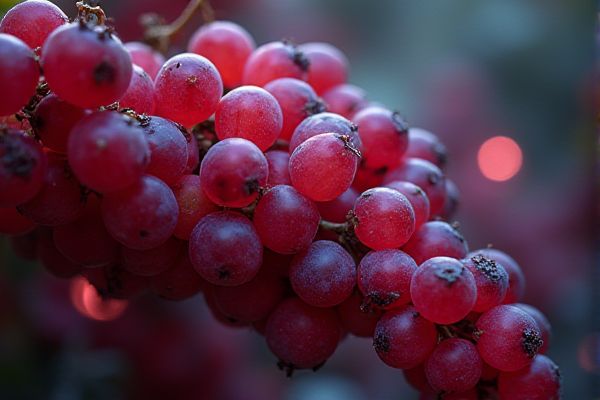
AI technologies in wine production optimize vineyard management by analyzing soil conditions, weather patterns, and grape health. Predictive analytics help winemakers determine the best harvesting times, enhancing grape quality and flavor. Machine learning algorithms identify and predict potential vineyard pests and diseases, allowing for timely interventions. Automation in the wine-making process increases efficiency and consistency, from fermentation to bottling, ensuring a higher quality end product.
AI usage in wine production
Precision Viticulture
AI technology in precision viticulture offers the potential to enhance grape quality and yield. By analyzing data from sensors and drones, vineyards like Chateau Margaux can optimize irrigation and pest management. This approach may lead to more sustainable practices and reduced resource waste. The chance to implement AI could provide wineries with a competitive advantage in an evolving market.
Yield Prediction
AI technology can significantly enhance yield prediction in wine production by analyzing weather patterns, soil conditions, and historical data. For example, algorithms developed by institutions like UC Davis have been used to forecast grape yields more accurately. This leads to better resource allocation and helps winemakers optimize their production processes. The potential advantages include increased profitability and improved quality of the final product.
Disease Detection
AI can enhance wine production by analyzing soil data and predicting harvest times, which may lead to improved quality and yield. Technologies like machine learning can also assist in disease detection in vineyards, identifying issues such as powdery mildew at an early stage. Wineries that integrate these AI technologies could optimize their processes and increase their competitiveness in the market. The potential for AI to improve efficiency and reduce losses is significant within the agricultural sector.
Quality Assessment
AI can enhance wine production through improved quality assessment techniques. By analyzing chemical compositions and sensory data, AI systems can predict the optimal harvesting time, leading to better flavor profiles. For instance, a vineyard like Chateau Margaux may implement AI algorithms to assess grape quality, ensuring only the best grapes are selected for their prestigious wines. This application of AI not only streamlines processes but also increases the chances of producing award-winning vintages.
Climate Adaptation
AI technology has the potential to enhance wine production by optimizing vineyard management and improving grape quality. For instance, machine learning algorithms can analyze climate data to predict the best planting times and grape varieties for different regions. This approach not only aids in adapting to climate changes but may also lead to higher yields and better flavor profiles in wines. Institutions like UC Davis are exploring these AI applications to advance viticulture practices.
Automated Harvesting
AI integration in wine production enhances precision in various processes, particularly in automated harvesting. Technologies such as drones and sensors can monitor grape ripeness, ensuring optimal timing for harvest, which may improve the quality of the wine. By employing machine learning algorithms, vintners can analyze weather patterns and soil conditions, increasing the potential yield. A winery using such advanced techniques could gain a competitive advantage in producing premium wines.
Supply Chain Optimization
AI technology can enhance wine production by optimizing various stages such as fermentation and bottling, which may lead to improved quality and reduced costs. In supply chain optimization, AI can analyze demand trends and adjust inventory management accordingly, minimizing waste and ensuring timely delivery. The use of predictive analytics could, for instance, help a winery like Chateau Margaux forecast sales and production needs more accurately. This integration of AI offers the potential for increased efficiency and profitability in the highly competitive wine industry.
Sensory Evaluation
AI can enhance sensory evaluation in wine production by analyzing consumer preferences and feedback. Machine learning algorithms can identify patterns in taste profiles and suggest optimal blending techniques. For instance, institutions like UC Davis have explored AI's potential in improving wine flavor consistency. This could lead to a more refined wine selection process and potentially higher customer satisfaction.
Irrigation Management
AI technology can enhance wine production by optimizing irrigation management. Predictive analytics can help vineyards determine the ideal amount of water needed based on weather patterns and soil conditions. This precision can lead to healthier grapes and potentially improved wine quality, as evidenced by institutions like the University of California, Davis. By utilizing data-driven approaches, wine producers can increase both efficiency and sustainability in their operations.
Data-driven Fermentation
AI can optimize fermentation processes in wine production by analyzing environmental factors such as temperature and humidity. Implementing data-driven techniques may lead to improved yeast performance and wine quality, offering a competitive advantage in the market. By utilizing predictive analytics, winemakers can anticipate fermentation outcomes more accurately. For example, the Institute of Masters of Wine is exploring AI's potential to enhance flavor profiles in wines through precise interventions.
 techknowy.com
techknowy.com